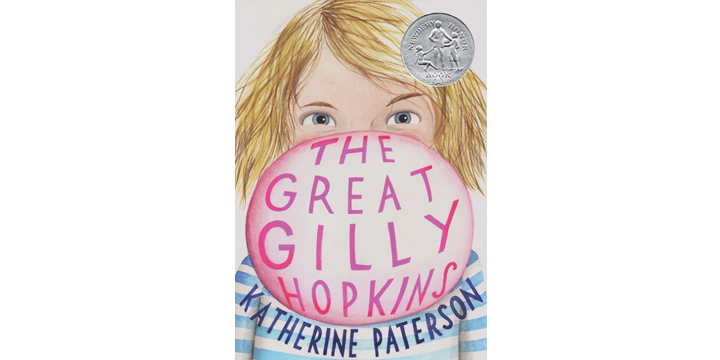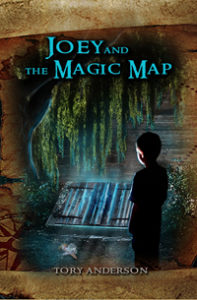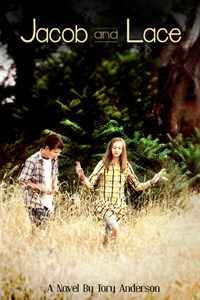spoiler alert
Everyone knows a good princess fairytale ends with the words, “And they lived happily ever after.” Although Gilly isn’t a princess, her story in The Great Gilly Hopkins almost ends in the princess fairytale manner. “Almost” is the key word here. The book did come to a happily ever after ending, but then Paterson kept writing for six more frustrating chapters. Why did Paterson do it? Gilly, the meanest, rudest, bitterest eleven-year-old you may have ever read about, has finally learned how to love and trust again. It’s a beautiful chapter where the forsaken Gilly finally gives in to the gentle but overwhelming love of her foster mother, Maime Trotter. Gilly has finally found a family and loves it fiercely. It appears that Gilly’s problems are over. At this point Gilly can “live happily ever after.” But Paterson doesn’t believe in fairytale endings. Just when things are going so well Gilly appears to be ripped from her newfound happiness to face a harsh reality. Paterson knew what she was doing. In the harshness lies a gift of truth which in turn encompasses a pure love and happiness that can actually exist in reality, and not just in childish fairytales.
As far as fairytale endings go, Paterson knows how to set one up. After Gilly has been abandoned at three years old by her birth mother and then two years later by her first foster mother, she wraps herself in anger and bitterness. She has learned to expect no kindness from those whom she is told are “nice” and no loyalty from those who are paid to take care of her. She trusts no one. As a coping mechanism she fixates upon the one who abandoned her first, Courtney, her birth mother. She explains, “I can’t go soft—not as long as I’m nobody’s real kid—not while I’m just something to play musical chairs with . . .” In Gilly’s warped, young mind Courtney is the only person she can trust to not love her and leave her. It must be pointed out that Gilly’s mother has only written her one perfunctory note in eleven years—there have been no visits, no calls, no letters, and no explanations. Still, compared to “musical chairs” in the foster system, Gilly sees her mother, Courtney, as her only hope for lasting love.
This is where Maime Trotter enters the picture. Like Gilly’s previous foster mothers Trotter is “accused” of being nice. Unlike Gilly’s previous foster parents, Gilly’s tried and tested technique of slash and burn via words and deeds doesn’t make Trotter hate her. Trotter’s love and patience for Gilly is relentless. After betraying Trotter’s growing trust by stealing all her money and running away, Gilly is brought back to Trotter’s to overhear her say, “No! I ain’t never giving her up. Never!” to the caseworker who is insisting Gilly go to a more secure home. When Gilly heard Trotter go on to say, “I like to die when I found her gone,” the protective ice around Gilly’s heart melts and “Gilly’s whole body was engulfed in a great aching.” It’s the end of the angry, mean, racist Gilly. She accepts Trotter, William Earnest, and black Mr. Randolph as family. It’s beautiful. It’s happy. It’s a fairytale ending.
To end the book here is the equivalent of “And they lived happily ever after.” Is there anything wrong with a “happily ever after” ending? After all, parents happily read fairy tales to their kids, and adults eagerly watch Hallmark Movies. It seems human beings are hungry for happy endings. Why is this? Perhaps it’s because we don’t feel we get enough of these in real life. We seek solace in the illusion rather than strength in reality. It’s clear Paterson doesn’t believe in writing illusions. She could have ended her book with the crowd-pleasing fairytale ending, but instead she carried on to an ending that many of my students outright hate or are at least find highly disappointing. Why would she do this? Is Paterson like Gilly, angry and mean? I believe it is quite the opposite. Paterson finds that reality is better, more fulfilling, than the illusion.
Just when Gilly is getting settled into her new life with Trotter, Gilly’s grandmother shows up. At first thought most of us wouldn’t think that a grandmother showing up to be a bad thing. In this story it’s a major complication. Gilly had never considered she had a grandmother, and her grandmother (Nonnie) had only learned of Gilly’s existence the day before. Courtney never told Nonnie of Gilly’s birth. In an attempt to get her mother to come get her, Gilly had written a letter misrepresenting life at Trotter’s house. Courtney, who hasn’t communicated with her mother in thirteen years, asks Nonnie to take Gilly in. Nonnie arrives unannounced to check on Gilly. It happens to be an awfully bad time when everyone except Gilly is sick. It’s a humorous scene where Trotter’s house temporarily looks a little like an insane asylum. Based on the information in Gilly’s letter, and on what she sees, Nonnie, automatically loving a granddaughter as most grandmothers would, misunderstands the situation and at the end of her short visit pecks Gilly on the cheek and says, “I’ll get you out of here soon. I promise you I will!” Later, when the tired Gilly realizes what her Grandmother’s words mean, she thinks, “Oh, my God.” Her fairytale is coming to an end.
The reader, who now loves Trotter as much as Gilly does, also feels like the world is ending. Nonnie, whose heart has been broken by the loss of two children and her husband over the years, is excited to have a granddaughter in her life. She is a bright woman and soon realizes that Gilly doesn’t share her excitement. She sincerely tells Gilly “I’d hoped you’d be glad to come with me. I’m sorry.” To this Gilly thinks, “If you’re sorry, turn this old crate around and take me back.” A good reader will realize that it isn’t as bad as it seems. Gilly’s grandmother clearly cares for Gilly and is going to provide a good home. Trotter and friends are just one hour away. There are letters, and telephone calls, and possible visits. It’s not like Paterson condemned Gilly to an underground prison with an ogre for a jailor.
This still doesn’t answer the question of why the author put Grandma into the plot. If the book ended simply with Gilly going away to live with grandma after discovering such love at Trotter’s home it truly would be a disappointing anticlimactic ending. Paterson is too good an author to ruin a good fairytale. She’s too good an author to write a fairytale in the first place. No, the purpose of Grandma in the plot is to take Gilly, a young student of love, and see if she can pass a critical test.
Out of love for Gilly, Nonnie contacts the daughter who abandoned Nonnie without a word thirteen years earlier and pays her way to come back to visit Gilly. Gilly and Nonnie meet Courtney at the airport with anxious excitement. Their bubble is soon burst when Nonnie discovers and wonders that Courtney is only planning to stay two days. As Courtney puts it, “Look. I came, didn’t I? Don’t start pushing me before I’m hardly off the plane. My god, I’ve been gone thirteen years, and you still think you can tell me what to do.” After Gilly’s lifelong dreams of her perfect mother this is a punch to the kidneys. Her immediate reaction is to run away to the first source of love since her mother abandoned her at three years old—Maime Trotter. From a phone at the airport she calls Trotter in tears and tells her she wants to “come home.” Trotter, who no doubt loves Gilly very much, tells Gilly a thing or two about life. She then asks the question—a question which is like the final exam in a class on real love—speaking of Gilly’s grandmother, a woman who also desperately needs love in her life, she says, “And leave her all alone? Could you do that?” In a dramatic moment Gilly realizes that, no, she can’t do what her mother did to her grandmother. From Trotter, Gilly has learned too well about loving in situations where it is tough to love. Running back to Trotter would be like a high school graduate refusing to graduate because they are afraid of what comes next.
Watching the angry, cruel Gilly Hopkins being transformed by Trotter into a girl who trusts and loves again is beautiful and fulfilling. The reader revels in the scene of Gilly speaking of her mother (Trotter), her brother (William Earnest), and of her uncle (Mr. Randolph). An average writer’s work would be done. But Paterson isn’t satisfied. She decides to test this new Gilly and see who she is under stress. Will she revert to the cruel, heartbroken Gilly? Or has Gilly truly become a new person. The ending says it all.
“Trotter”— She couldn’t push the word hard enough to keep the squeak out—“I love you.”
“I know, baby. I love you, too.”
She put the phone gently on the hook and went back into the bathroom. There she blew her nose on toilet tissue and washed her face. By the time she got back to an impatient Courtney and a stricken Nonnie, she had herself well under control.
“Sorry to make you wait,” Gilly said. “I’m ready to go home now.” No clouds of glory, perhaps, but Trotter would be proud.
Paterson’s book is no fairytale of easy, imaginary love. She gives us real-world love in a real-world ending. She doesn’t give us a sigh and a wish, but confidence in what really is possible.
__________________________________________________________________________________
These books by Tory Anderson are now available on Amazon in Kindle and paperback format:





